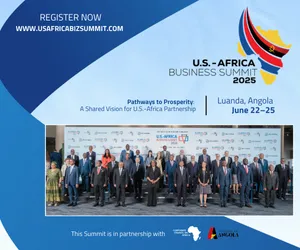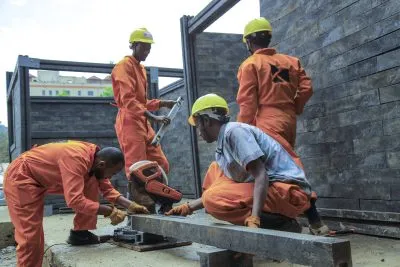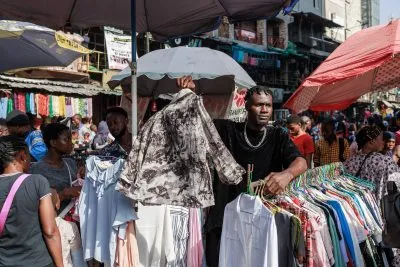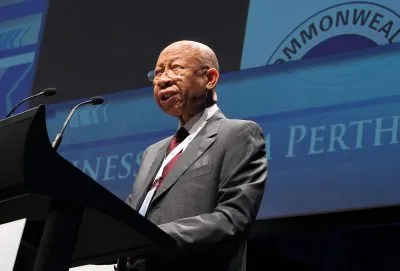For all the excitable talk about Rwanda’s economic emergence, the gap between ambition and reality can be stark.
Nowhere is this more apparent than a visit to Rwanda’s tiny stock exchange. Visitors are greeted with a glimpse of the country’s equities trading hub – a series of well-worn plastic whiteboards more reminiscent of a college classroom than an international financial centre.
In a country which has transformed itself from backwater to development model in just a few years, reminders of a less successful past are always just around the corner. Yet the tiny number of stocks on the whiteboard holds a warning for Rwanda’s economic planners. Despite the positive headlines, securing investor interest is by no means a given.
“Rwanda’s economy has grown at a very high rate over the last decade, and to be able to sustain this, the economy should be able to access long-term funding that will promote growth and the development of big-ticket investment projects. Many businesses require funding that cannot be provided by the banking sector,” says Robert Mathu, executive director of the country’s Capital Markets Authority.
Despite GDP growth of 6.9% last year and effusive write-ups from the International Monetary Fund, the investment picture continues to be patchy. According to a report by the United Nations Economic Commission for Africa, the response of foreign investors to recent government reforms “has not been encouraging”, with FDI inflows accounting for just 5% of GDP.
The stock market ought to be a major conduit for Rwandan companies seeking long-term funding from domestic and foreign investors – yet it had a total capitalisation of just $1.6bn in September 2015. Given the protracted efforts of government, regulators and the stock exchange, this may come as a surprise. Many of the building blocks needed to expand the market are already in place – paperless trading, moves to full automation – yet the bourse still lists only seven stocks.
Celestin Rwabukumba, chief executive of the Rwanda Stock Exchange, says that no bourse is an island – and argues that the wider economy must be geared towards listings. “We can’t operate in isolation, we are there to support the existing economy. The legal framework is ready – you can raise whatever money you want at the moment – ETFs, REITs, capital through equity and debt. The soft infrastructure is there, now what is remaining is to chase business.”
As well as targeting listings from the country’s burgeoning small and medium enterprise sector, Rwabukumba is hoping for more forceful government moves – including privatisations and incentives – to lure large firms to the market. Top of the hit list are companies with a public utility function – including banks and insurance companies.
“There are many areas where interventions can be made for a certain size of company. If you are collecting deposits you are really public. You have a public utility aspect. I think there should be a policy, not forcing them, but enticing them [to list]” he says.
Regulating success
Operating out of a half-built office in a Kigali high-rise, the Capital Markets Authority is walking a challenging tightrope between encouraging the entrepreneurial zeal of the emerging market and strangling it at birth. Mathu makes clear that he sees the regulator’s role as, first and foremost, one of protecting investors and building confidence in what to many remains an unfamiliar frontier market.
“We need to provide a legal and regulatory framework that provides stability and fairness – especially in the pricing of assets. Investors would like to know who is responsible for what – they need to understand the risk areas,” he says.

Yet Mathu is sympathetic to the exchange’s expansionary ethos – and the need to provide new opportunities for investors demanding exposure to Rwanda. Get corporate governance right, he says, and the listings will follow.
“For business enterprises which have been given a licence to mobilise savings from the public, the demand we would wish to make is for them to become more transparent by adopting higher standards of governance … While we are cognisant of the fact that investor protection is key, we need to build something to protect. We are development-minded regulators here to provide an organised market and encourage entrepreneurs to come.”
Those investors are likely to emerge from the wider region as financial integration in the East African Community (EAC) brings the dream of a single market closer to reality. Member states are busy crafting a monetary union, to be policed by a single financial services commission. Rwanda is leading the way, having been ranked first in the EAC for financial integration by the Africa Regional Integration Index Report 2016.
Given the pace of the regional project, and the miniscule size of several regional exchanges, thoughts are inevitably turning to whether Rwanda’s stock exchange could merge with its rivals. Could West Africa’s BRVM – a single exchange which serves eight markets – provide a potential model?
Rwabukumba refuses to dismiss the idea, but insists that the future of his exchange will be decided by hard-headed commercial realism.
“We are working towards a fully integrated and more efficient market – if that means one stock exchange, it will happen. It will be a business decision, not policy. If we realise it’s more efficient by collapsing everything into one, fine.”
While the future of the exchange may lie with deep-pocketed regional investors, Rwabukumbwa says his immediate priority is making friends among Rwanda’s nouveaux riches. As the country gradually strives towards middle-income status, he hopes that a new generation of emerging entrepreneurs will patriotically pitch in to their home market.
“Our main focus is retail investors. For the next five years I’m not looking for institutional investors – those guys know what’s happening in Rwanda. Our retail markets and savings culture has not been embedded – high net worth and retail investors are the focus. We don’t have enough participation.”
David Thomas
Want to continue reading? Subscribe today.
You've read all your free articles for this month! Subscribe now to enjoy full access to our content.
Digital Monthly
£8.00 / month
Receive full unlimited access to our articles, opinions, podcasts and more.
Digital Yearly
£70.00 / year
Our best value offer - save £26 and gain access to all of our digital content for an entire year!

 Sign in with Google
Sign in with Google 





